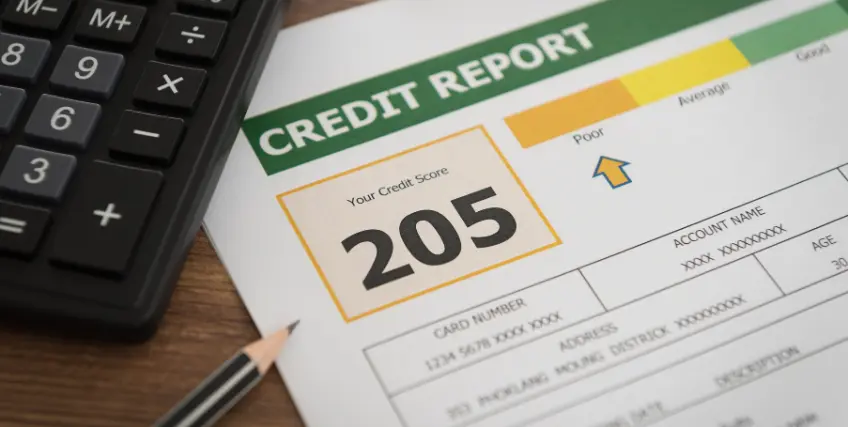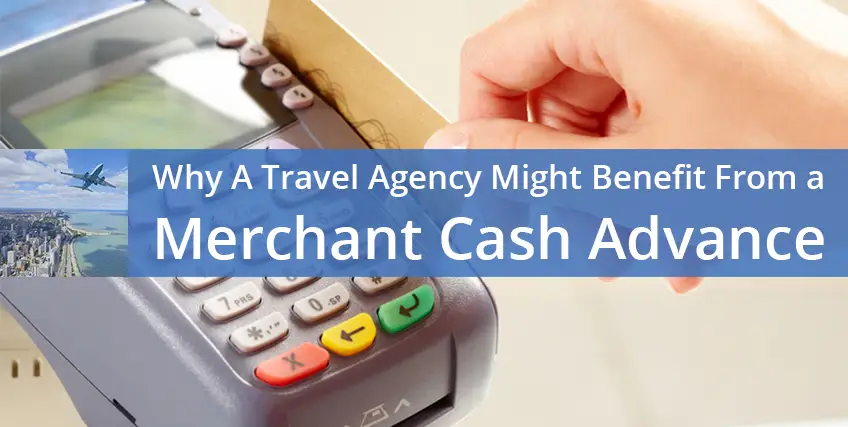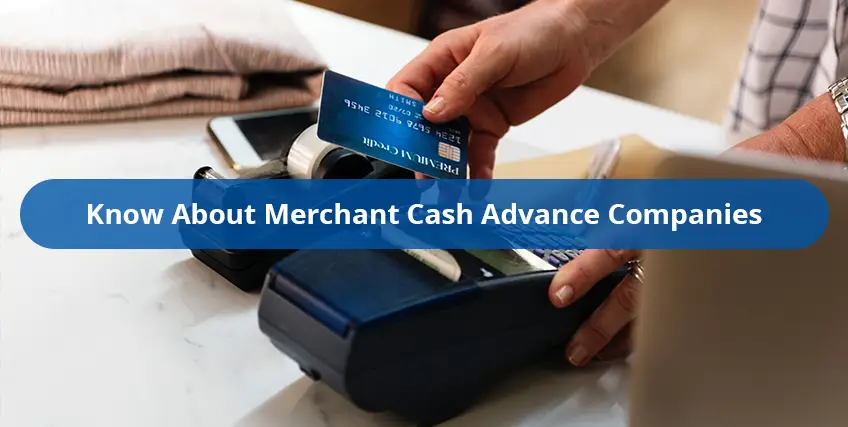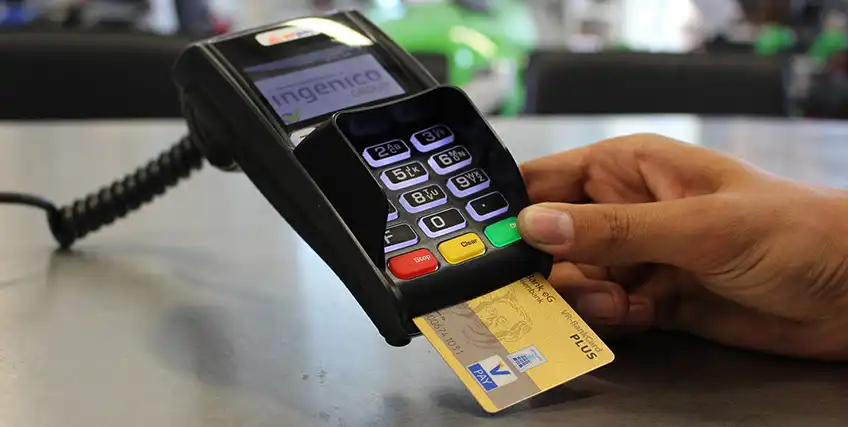What is an MCA in the retail business?
January 10, 2025 | Last Updated on: January 10, 2025

Retailers often require quick and flexible access to capital to manage cash flow, purchase new inventory, or hire temporary workers during the holidays. One popular financing solution for this is a merchant cash advance (MCA). This option gives retailers a lump sum of cash in exchange for a percentage of future sales. Unlike traditional loans, MCAs can offer fast funding with no need for collateral, making them attractive to small and medium-sized businesses that may not be able to qualify for traditional financing through a bank.
However, while merchant cash advances like MCAs offer significant advantages, they also come with higher costs compared to traditional financing, which can affect profitability if not managed carefully. As retail businesses weigh the trade-offs, understanding how to use MCAs strategically becomes essential for sustainable growth and financial health.
What is a Merchant Cash Advance?
A Merchant Cash Advance (MCA) is an alternative financing solution where businesses receive a lump sum of cash upfront in exchange for a percentage of future credit card sales. Unlike traditional loans, MCAs aren’t repaid through fixed monthly installments, but rather the advance amount is based on a portion of sales in a specified period. This is appealing for small businesses with inconsistent cash flows like retail stores.
One major benefit is that MCAs don’t require great credit when you apply, which is a significant difference from traditional bank loans.
How MCAs Benefit Retailers
MCAs are especially popular among retail businesses, as they provide quick access to working capital when it’s needed most. Retailers often face business funding crunches due to fluctuations in demand. This means the repayment terms of MCAs are a solid way to ease potential financial stress.
For example, if sales are slow one day or one week, the repayment amount is lower. This means you won’t have fixed payments, but rather fluctuating amounts. Additionally, the application process can be quick (compared to other business credit), helping businesses seize time-sensitive opportunities or handle emergencies without lengthy delays.
Risks and Considerations of MCAs
While small business cash advances offer speed and flexibility, they also come with higher costs than traditional financing. Instead of interest rates, MCAs use a factor rate (not an annual percentage rate)—typically ranging from 1.1 to 1.5—meaning a business might repay significantly more than the amount borrowed.
For example, borrowing $50,000 with a 1.3 factor rate means repaying $65,000. If sales slow for an extended period, businesses could struggle to meet their repayment obligations, potentially leading to cash flow issues. Retailers considering MCAs should carefully evaluate whether their projected sales can support repayment and explore other financing options to ensure they make the best long-term decision.
Benefits of Merchant Cash Advance for Retail Businesses
A merchant cash advance offers retail businesses quick and flexible access to capital, which can be critical for managing seasonal demand, expanding operations, or addressing unexpected expenses. Unlike traditional loans, MCAs are repaid through a percentage of daily sales, allowing businesses to adjust payments based on performance.
A business cash advance can be especially helpful in retail, where cash flow can fluctuate throughout the year. Retailers can use MCAs to purchase inventory, fund marketing campaigns, or hire additional staff during busy periods, ensuring they meet customer demand without delays.
Here are several benefits of using a merchant cash advance for a retail business:
Key Benefits of Merchant Advance Loans for Retail Businesses
- Flexible Payments: Payment amounts fluctuate according to sales, which can ease financial pressure during slow periods.
- Potentially Quick Funding: Approval can happen as soon as a few days, which can be much faster than a small business loan.
- No Collateral Required: Retailers don’t need to put up assets, which can reduce the risk to the business and personal assets.
How to Qualify for a Merchant Cash Advance
Qualifying for a merchant cash advance (MCA) can be potentially easier and faster than obtaining a traditional loan. MCA providers want to see steady cash flow, especially from credit card sales or regular bank deposits, as the advance will be repaid through a percentage of these daily or weekly sales. Most providers look for businesses with a specific monthly revenue to ensure they can handle the repayment structure. The more reliable the sales, the higher the chance of approval and better terms. Your credit score and credit history can be taken into account but doesn’t hold as much weight as traditional business financing like a small business term loan. This is good news if a small business owner may have a bad credit score.
Next, the funding provider will look at how long the business has been up and running. While MCA providers are more lenient than traditional lenders, they typically require that a business has been operating for at least 6 months to demonstrate stability. You can prove this typically through business bank account statements. Startups or very new businesses may have difficulty qualifying unless they show strong early sales performance on bank statements.
Another important factor for eligibility is the accounts receivable history. Retailers or service-based businesses that generate a large portion of sales through credit or debit card payments can be a great type of business for this type of financing.
Where To Get a Merchant Cash Advance
Merchant cash advance (MCA) funding is available from a variety of sources including online funding providers.
Many merchant cash advances offering a fast application process with approvals in as little as a few days. Some traditional banks and credit card processors may also offer MCA options, though they tend to have stricter requirements. When choosing a provider, it’s essential to research their reputation, fees, and repayment terms to ensure the funding aligns with your business needs.
Note that the SBA doesn’t offer merchant cash advances.
Final Thoughts
Merchant cash advances (MCAs) can be a great short-term funding option for retail businesses seeking quick access to capital without the headaches of applying for a traditional loan. MCAs offer a practical solution for managing seasonal fluctuations, purchasing inventory, or covering operational expenses. However, this financing option may come with significant fees, so be sure to carefully assess their ability to handle repayments.
FAQs about Merchant Cash Advances
What is a merchant cash advance?
A merchant cash advance is a small business cash advance that allows merchants to sell future receipts from credit card transactions in exchange for upfront funding. The monthly payments vary based on the performance of your business.
Why do you need a merchant cash advance?
Merchant cash advance companies can provide merchants with a funding amount to help with fast funding needs.
How does an MCA work?
A merchant cash advance works by allowing the merchant to sell future credit card receipts and debit card sales for a cash advance. The funding amount will vary based on the receipts.
What is a business loan?
A business loan is a type of funding where businesses can get the working capital they need to make necessary purchases like real estate and other essential investments.
Frequent searches leading to this page
mca business loans, merchant cash advance direct lenders, merchant cash advance lenders, mca advance
Recent Articles
Related Articles

Can You Renegotiate Terms on MCA Cash Financing After a Default? What Business Owners Need to Know
November 27, 2024

Business Loan or Merchant Loan? Understanding Loan Options for Your Business
November 25, 2024

Avoiding the Debt Trap: How Stacking MCA Business Financing Can Hurt Your Business Credit
November 7, 2024

Why MCA Business Funding May Be Ideal for Retailers Looking to Expand Inventory
November 5, 2024

Merchant Cash Advance vs. Asset-Based Lending: Which is Right for Your Business?
January 10, 2025

Merchant Cash Advance vs. Traditional Business Loans: Which is Right for Your Business?
January 10, 2025

Merchant Cash Advance vs. Line of Credit: Which is Right for Your Business?
January 9, 2025

5 Things Every Small Business Owner Wishes They Had Known When They Started
January 9, 2025































